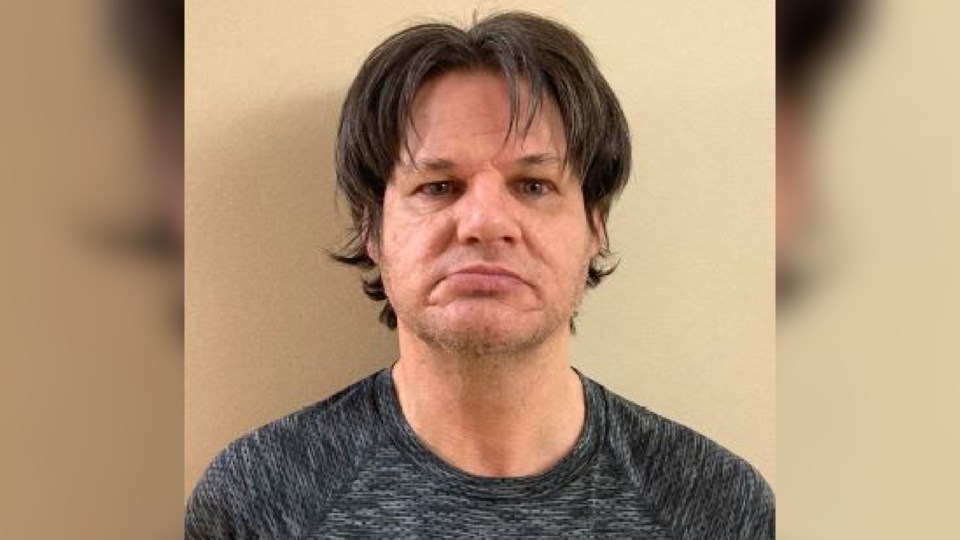A high-risk child sex offender remains in custody after being on the run for more than a week and ultimately turning himself in to police for being cold.
Randall Hopley, 58, never returned to his Â鶹´«Ã½Ó³»halfway house, the Salvation Army's Harbour Light facility, on Nov. 4. His electronic ankle monitoring bracelet was removed at Main Street and East 8th Avenue. A Canada-wide warrant was subsequently issued.
Hopley was living at the Downtown Eastside halfway house as part of his 10-year long-term supervision order. Police believe he was attempting to avoid a trial on Nov. 6 for allegedly breaching a long-term supervision order.
On Nov. 14, Hopley was found waiting outside the Â鶹´«Ã½Ó³»Police Department building on East Cordova Street and taken into police custody.
Back in 2011, he abducted a three-year-old boy from his home in Sparwood in southeastern B.C. and was released with conditions under a long-term supervision order. Hopley held the boy captive in a cabin for four days before returning him unharmed.
He completed a six-year prison term for the incident.
According to the Parole Board of Canada (PBC), if an offender breaches conditions of their long-term supervision Correctional Service Canada "may suspend their release and the offender may be returned to custody.”
Lisa Saether, the regional manager for the Parole Board of Canada, says following the suspension of an offender’s long-term supervision "CSC may decide to cancel the suspension and return the offender to the community or refer the case to the PBC for a post-suspension review."
When asked about Hopley, a spokesperson from Correctional Service Canada says it cannot provide case-specific information about the offender.
“We can confirm that when an offender is on a long-term supervision order (LTSO) and is returned to custody following a period of being unlawfully-at-large, there is a process that includes working with the local police and the Parole Board of Canada to review the circumstances while they were at large and the potential for new charges to be pursued by police and Crown under Section 753.3 of the Criminal Code of Canada,” says Jean-Paul Lorieau.
That specific section of the Criminal Code states that a beach of long-term supervision, without reasonable excuse, is an indictable offence and liable to imprisonment for a term of not more than 10 years or an offence punishable on summary conviction.
Â鶹´«Ã½Ó³»Police Department Sgt. Steve Addison says Hopley's case may create change in the system.
“There are important conversations that are happening now about the system that allowed Hopley to live in the community and whether changes need to be made to that system,” says Addison. “We will join in those important conversations that are happening right now.”
The suspension warrant for an LTSO offender is only valid for a period of 90 days from the date that it is executed and, according to Lorieau, it cannot, by law, be extended for any reason.
"In cases where new charges are approved by Crown, the issue of bail is decided on by the courts,” said Lorieau.
The BC Prosecution Service tells Glacier Media that Hopley remains in custody.
"These warrants were issued following his failure to attend for his trial on charges of breaching his long-term supervision order,” said spokesman Dan McLaughlin.
Hopley did appear Nov. 14 for a bail hearing on the new charge of failing to appear for his trial and for a Crown application to revoke bail on the breach charges.
"That hearing was adjourned to Nov. 24,” says McLaughlin.
Hopley will remain in custody pending his bail hearing on Nov. 24.
Under the Criminal Code, being at large without excuse is an indictable offence and liable to imprisonment for a term of not more than two years or an offence punishable on summary conviction.



